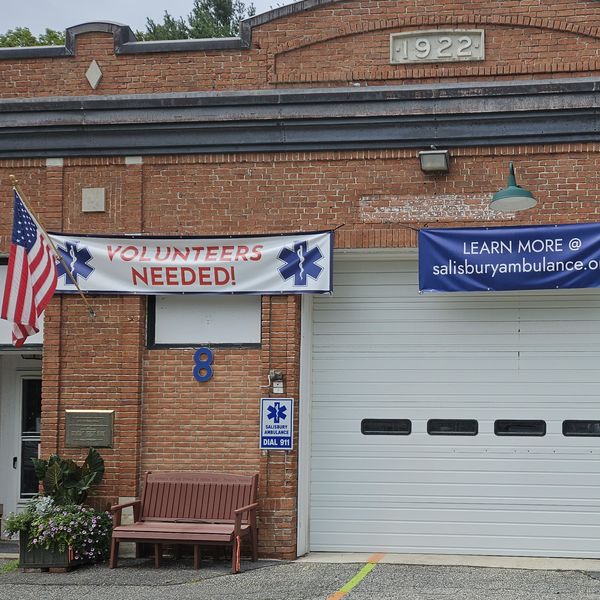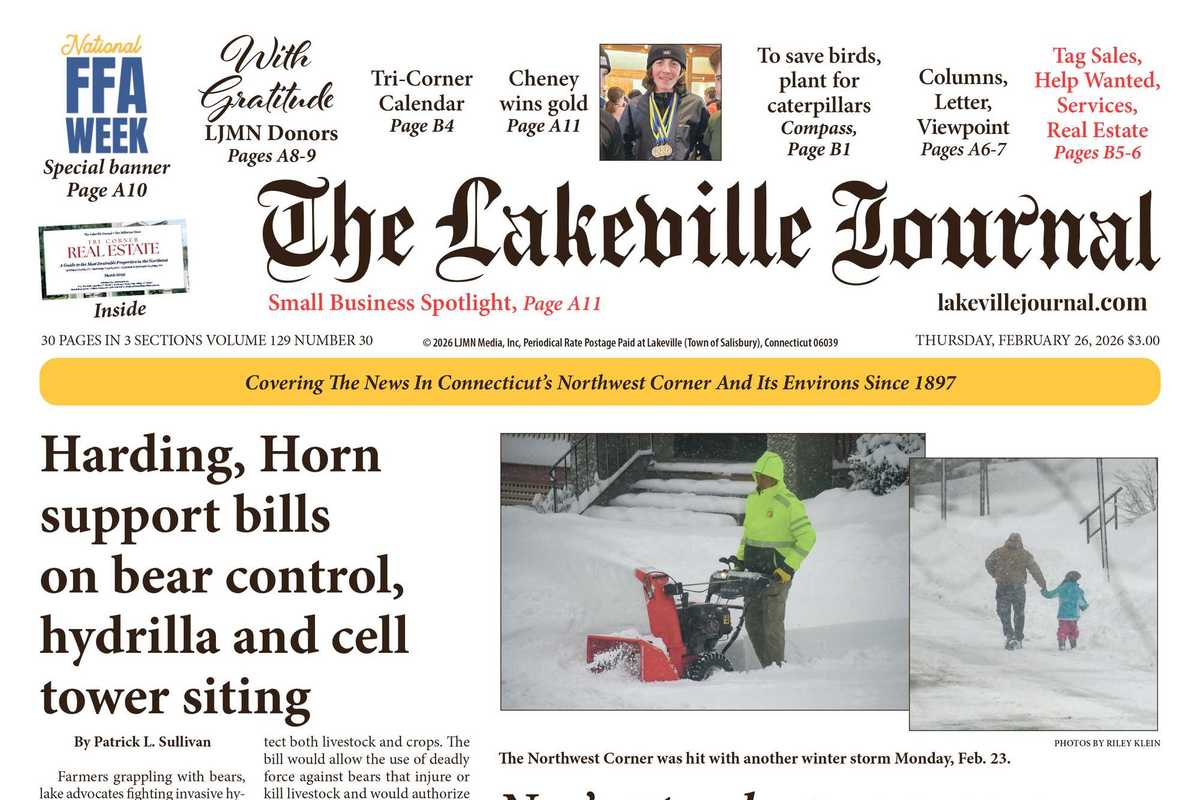Last month, food waste diversion was the focus of “Make Less Garbage.” Getting wet and heavy food scraps out of the garbage stream is a noble and necessary pursuit as Connecticut and other states must address the rising costs and environmental damage of garbage disposal. There is, however, much more to the big picture of waste reduction. Take a look at the concept of Zero Waste, a lofty goal which includes many things you might already do, or many things that were simply common sense generations ago. As a case in the latter point, I’ll share these observations from long-ago visits to my grandmother in Honesdale, PA.
My husband and I usually met my grandmother, great aunt, and a few of their friends at Kreitner’s Restaurant, where the coffee mugs of regular customers were kept on shelves, and the food was tasty but often more than the 80 year-olds could eat for lunch. At the end of the meal, as if an alarm bell went off, the ladies simultaneously opened their purses and pulled out a bag or container to take their leftovers home. Their habits were driven by a brand of frugality along the lines of “waste not, want not” but achieved the present-day goal of reducing and reusing. We have become an increasingly convenience-driven society – grabbing coffee in take-out cups, handing out single-use plastic bottles of water to athletes in competitions, and using disposable plates, cups, and utensils for picnics, tailgates, and parties. As much as possible, with some awareness and planning (and yes, possibly a smidgeon of inconvenience), we can avoid single-use products. The Zero Waste movement follows the same principle, but adds in other stakeholders so that manufacturers and consumers alike make a goal of reducing the volume of garbage.
Zero Waste is essentially a philosophy and a design principle. According to the Zero Waste International Alliance (ZWIA), the waste prevention strategies revolve around the conservation of resources through responsible behavior in “production, consumption, reuse and recovery of all products, packaging, and materials, without burning them, and without discharges to land, water or air that threaten the environment or human health.” Note the term waste prevention rather than waste management. Prevention begins with producers of consumer goods, product designers, and distribution systems; management of waste comes at the end of the pipeline.
According to the Connecticut Department of Energy and Environmental Protection (DEEP), there is a hierarchy of priorities in strategizing for waste prevention: Redesigning the current, one-way industrial system into a circular system, creating products and packaging that are durable, can be reused, or can be recycled; providing waste-based business opportunities to create jobs from discards; recognizing the importance of producer responsibility; aiming to eliminate or prevent waste rather than manage it; and enabling reused and recycled products to compete with products using virgin materials. Of these strategies, producer responsibility, is most actionable, and, in fact, exists for some products.
In 2007, the State of Connecticut passed legislation to go into effect in 2011 requiring Extended Producer Responsibility (EPR) to ensure that producers of electronics (computers, monitors, televisions, audio and stereo equipment) were responsible for the end life of the products they manufacture. EPR for mattresses and paint followed soon after. Under the stewardship of the producers, there is no cost to taxpayers to transport these products from transfer stations and other collection sites. Strong and persistent voices have been pushing for additions to the current list of product stewardship programs, including the manager of the Salisbury/Sharon Transfer Station and your local legislators. Next in line are gas cylinders, tires, and smoke detectors. Other states are moving in the same direction; some have taken further action, including Maine, the first state to enact EPR for packaging.
Other good news includes the development of businesses committed to waste prevention. One example is the proliferation of businesses providing and managing reusable containers for take-out orders at their partner restaurants. Unfortunately, for now, those businesses exist in high-density population centers, including New York City, Boston and San Francisco.
During the pandemic, the volume of take-out orders has created an opportunity for companies like DeliverZero and r.Ware to make the idea of reusables an economical advantage for restaurants. Restaurants in our corner of Connecticut should take note, though, and explore the reusable container idea. There are plenty of restaurants and many customers who order take-out meals; maybe there is an opportunity for an enterprising soul to hop on the Zero Waste wave. You can find more information about that wave at wastezero.com and upstreamsolutions.org.
Barbara Bettigole is Chair of the Transfer Station Advisory Committee, and a certified UCONN Master Composter. She lives in Lakeville with her husband Rob.




 lakevillejournal.com
lakevillejournal.com 







 Visitors consider Norman Rockwell’s paintings on Civil Rights for Look Magazine, “New Kids in the Neighborhood” (1967) and “The Problem We All Live With” (1963.) L. Tomaino
Visitors consider Norman Rockwell’s paintings on Civil Rights for Look Magazine, “New Kids in the Neighborhood” (1967) and “The Problem We All Live With” (1963.) L. Tomaino






Make Less Garbage, Part II: Zero Waste